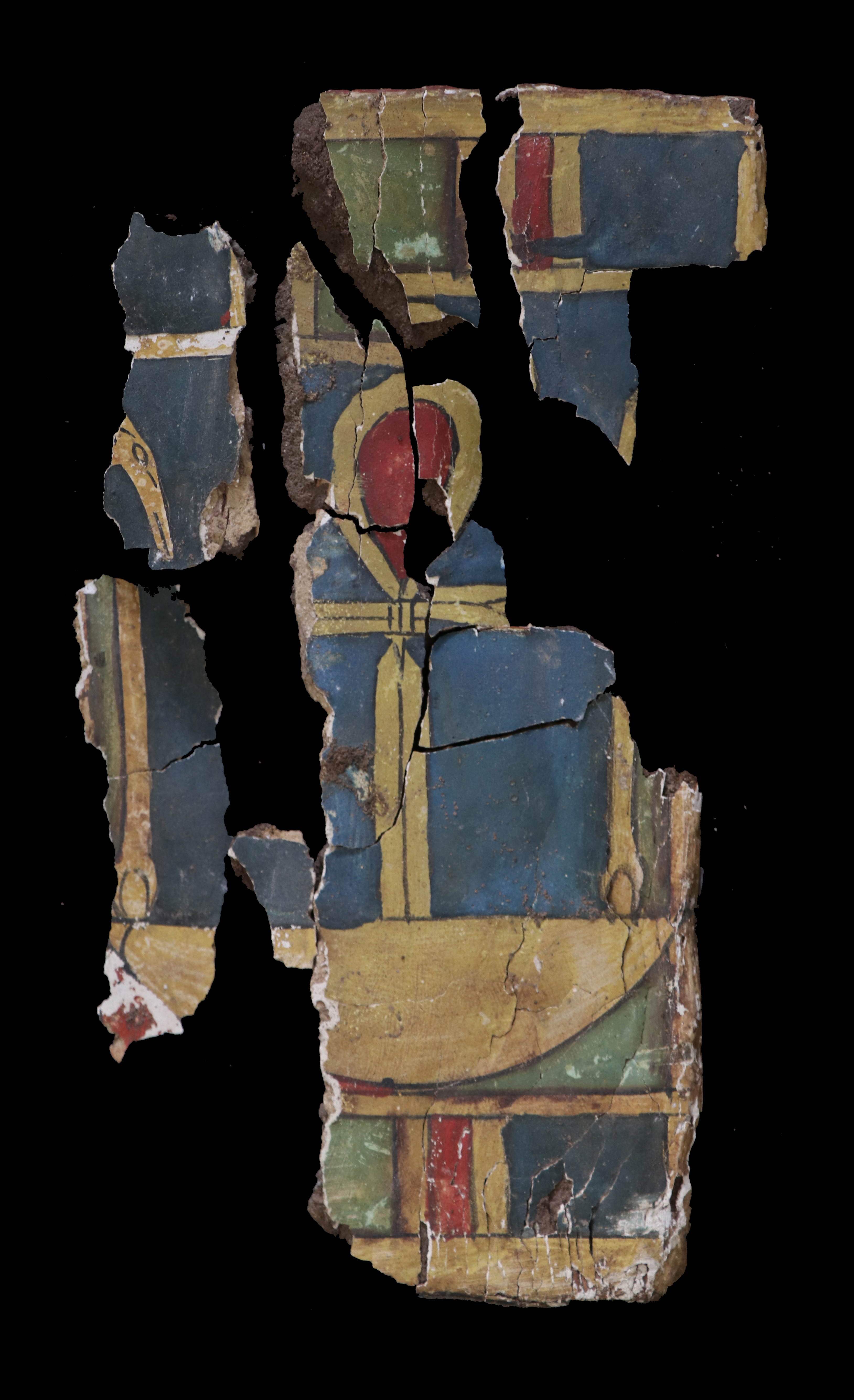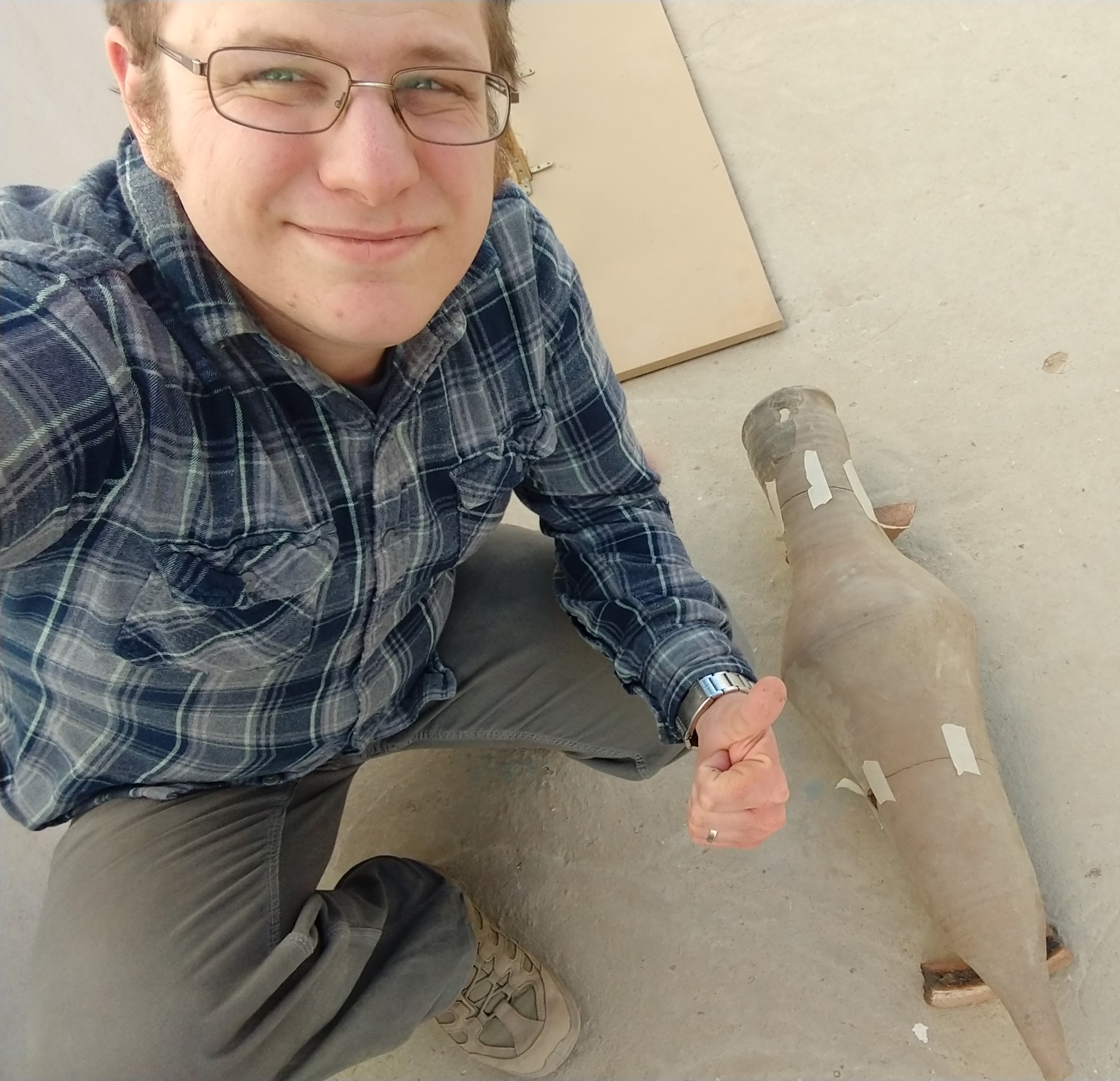Fluctuating Landscapes: Continuity and Change at Ptolemaic Abydos
An ARCE Member Exclusive
Every month, ARCE offers an online lecture featuring research and experts in the fields of Egyptology and Archaeology to its membership. If you are a member of ARCE and would like to attend, please register using the form available below.
Check out what we have in store for this month!
January 10, 2021 1PM ET/ 8PM EET
(Registration form located at the bottom of this page)
Speaker: Thomas Landvatter: Assistant Professor of Classics and Humanities at Reed College; Portland, Oregon
Info about the lecture:
Fragments of a painted coffin, AMC 2012 excavations
Abydos remains one of the most important cemetery sites in Egypt. Serving as the burial site of the first kings of state-level Egypt, Abydos boasts multiple cemeteries in near constant use for 3,500 years, and was a major cult center to Osiris. But what happened to the site when Egypt was under the rule of the Macedonian Ptolemaic dynasty, when Greeks ruled Egypt? Later periods at Abydos have often been ignored in favor of its spectacular pharaonic period remains, but during the Ptolemaic period indigenous Egyptians and Greek speaking groups were intensely interested in the site. Research over the past 20 years, including the excavation of a large priest’s tomb by the Abydos Middle Cemetery project in 2011 and 2012, have begun to shed light on the development of Ptolemaic Abydos’ funerary and ritual landscape. Under the Ptolemies, the old ritual landscape of Abydos, focused on a processional route associated with Osiris’ annual festival. This continued largely unaltered and served as the organizing principle of mortuary activity. However, the New Kingdom temple complex of Seti I grew in importance as a healing and oracular center that was frequented by Greek speakers. By the end of the Ptolemaic period it is likely that the Seti I complex had become the ritual center of Abydos, with consequent major shifts in the ritual and mortuary landscape.
About Thomas Landvatter:
Prof. Tom Landvatter w/ Roman amphora from AMC 2012 excavations
Thomas Landvatter is the Assistant Professor of Classics and Humanities at Reed College in Portland, Oregon. An archaeologist and graduate of the Interdepartmental Program in Classical Art and Archaeology (IPCAA) at the University of Michigan, his research interests center on identity and the material consequences of cross-cultural interaction in the eastern Mediterranean during the Hellenistic period (323-30 BCE). His main research is on mortuary practices and identity in Ptolemaic period Egypt, but he also has extensive research interests in Ptolemaic Cyprus, where he is the co-director of the Pyla-Koutsopetria Archaeological Project’s excavations at Vigla.
Registration will close 48 hours before the lecture starts. Registration does not include any future lectures in this series.

